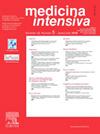Quality of causality assessment among observational studies in intensive care: A methodological review
IF 3.1
4区 医学
Q2 CRITICAL CARE MEDICINE
引用次数: 0
Abstract
Intensive care units (ICUs) rely in many instances on observational research and often encounter difficulties in establishing cause-and-effect relationships. After conducting a thorough search focused on ICU observational studies, this review analysed the causal language and evaluated the quality of reporting of the methodologies employed. The causal was assessed by analysing the words linking exposure to outcomes in the title and main objective. The quality of the reporting of the key methodological aspects related to causal inference was based on STROBE and ROBINS-I tools. We identified 139 articles, with 87 (63%) and 82 (59%) studies having non-causal language in their title and main objective, respectively. Among the total, 49 (35%) articles directly addressed causality. The review found vague causal language in observational ICU research and highlighted the need for better adherence to reporting guidelines for improved causal analysis and inference.
重症监护观察性研究因果关系评价的质量:方法学回顾
重症监护病房(icu)在许多情况下依赖于观察性研究,在建立因果关系方面经常遇到困难。在对ICU观察性研究进行全面检索后,本综述分析了因果语言并评估了所采用方法的报告质量。因果关系是通过分析标题和主要目标中将暴露与结果联系起来的单词来评估的。与因果推理相关的关键方法学方面的报告质量基于STROBE和ROBINS-I工具。我们确定了139篇文章,其中87篇(63%)和82篇(59%)的研究分别在标题和主要目的中使用了非因果语言。在总数中,有49篇(35%)文章直接涉及因果关系。本综述发现观察性ICU研究中存在模糊的因果语言,并强调需要更好地遵守报告指南,以改进因果分析和推断。
本文章由计算机程序翻译,如有差异,请以英文原文为准。
求助全文
约1分钟内获得全文
求助全文
来源期刊

Medicina Intensiva
CRITICAL CARE MEDICINE-
CiteScore
2.70
自引率
20.00%
发文量
146
审稿时长
33 days
期刊介绍:
Medicina Intensiva is the journal of the Spanish Society of Intensive Care Medicine and Coronary Units (SEMICYUC) and of Pan American and Iberian Federation of Societies of Intensive and Critical Care Medicine. Medicina Intensiva has become the reference publication in Spanish in its field. The journal mainly publishes Original Articles, Reviews, Clinical Notes, Consensus Documents, Images, and other information relevant to the specialty. All works go through a rigorous selection process. The journal accepts submissions of articles in English and in Spanish languages. The journal follows the publication requirements of the International Committee of Medical Journal Editors (ICMJE) and the Committee on Publication Ethics (COPE).
 求助内容:
求助内容: 应助结果提醒方式:
应助结果提醒方式:


